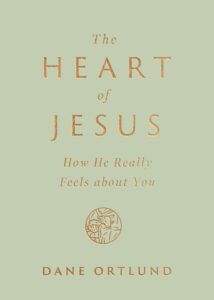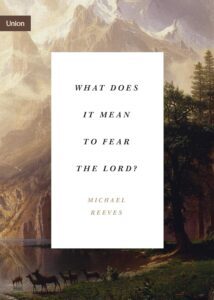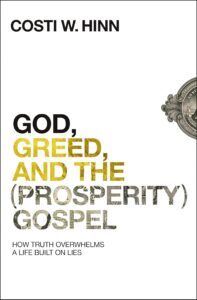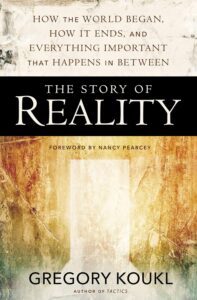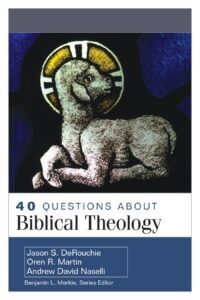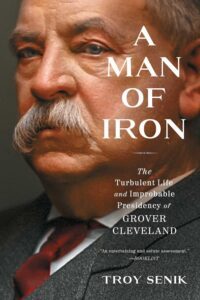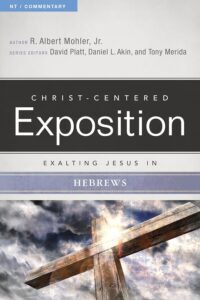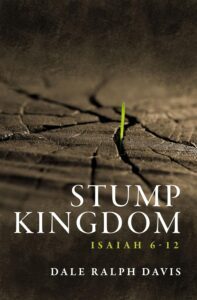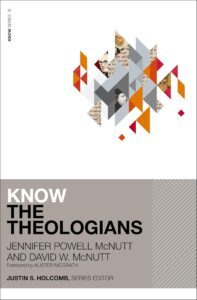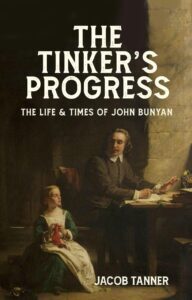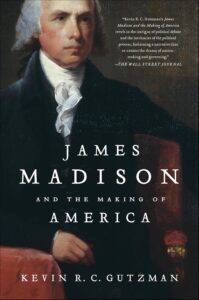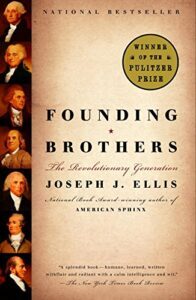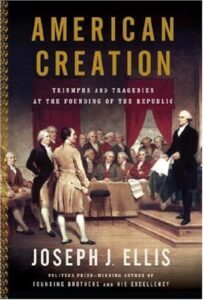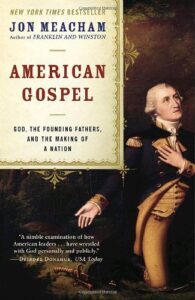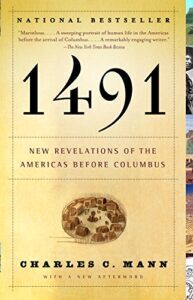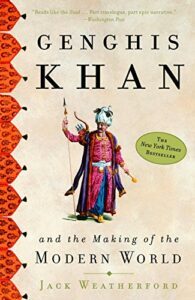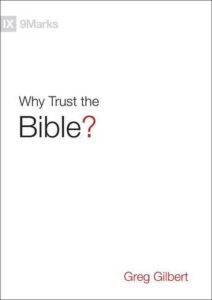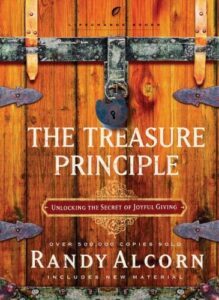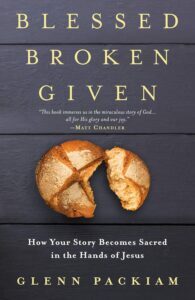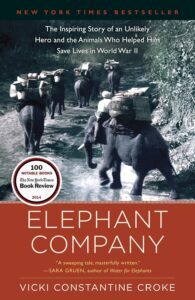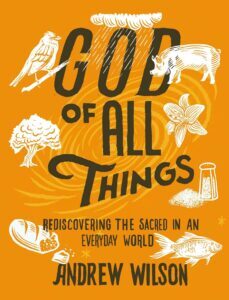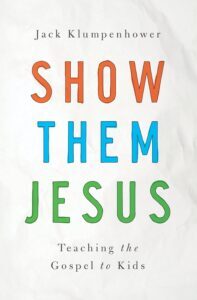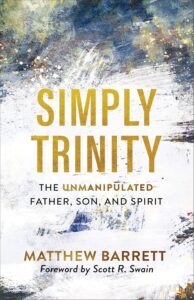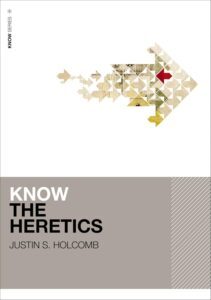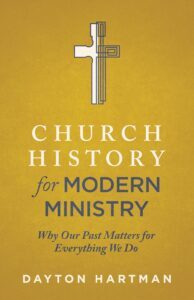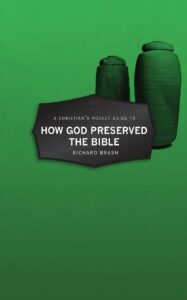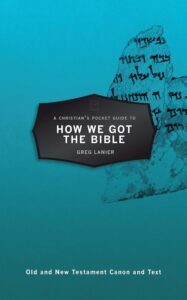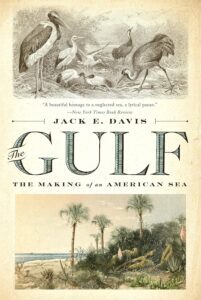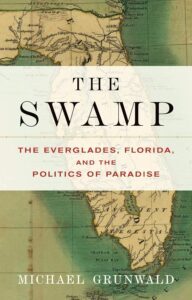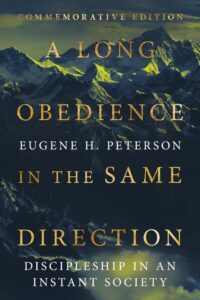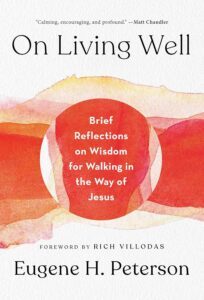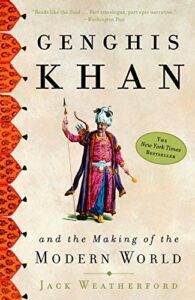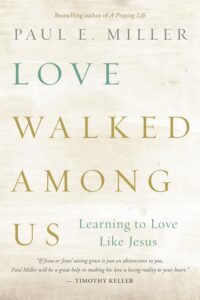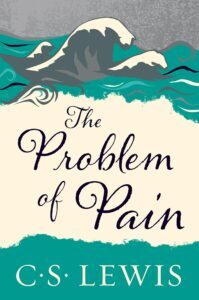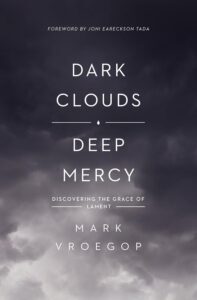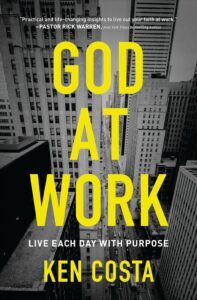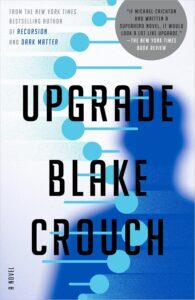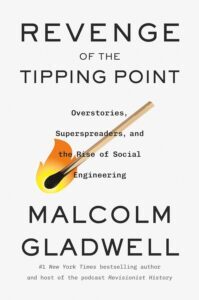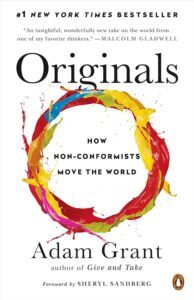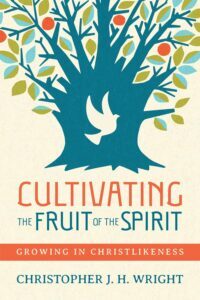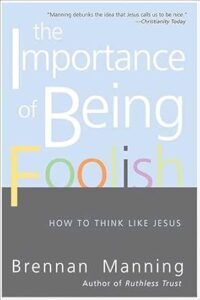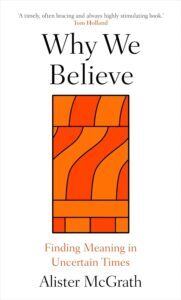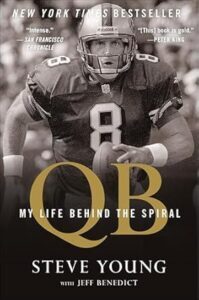Barnabas Piper's Blog, page 2
November 17, 2025
Kindle Deals for November 17
 Some Kindle deals worth your mind and money today:
Some Kindle deals worth your mind and money today:10 Questions Every Teen Should Ask (and Answer) about Christianity by Rebecca McLaughlin – $3.99
Gentle and Lowly: The Heart of Christ for Sinners and Sufferers by Dane Ortlund – $4.99
The Heart of Jesus: How He Really Feels about You by Dane Ortlund – $6.75
What Does It Mean to Fear the Lord?: “How the Fear of God Delights and Stengthens” by Michael Reeves – $6.21
Waiting Isn’t a Waste: The Surprising Comfort of Trusting God in the Uncertainties of Life by Mark Vroegop – $4.99
Come, Let Us Adore Him: A Daily Advent Devotional by Paul Tripp – $4.99
God, Greed, and the (Prosperity) Gospel: How Truth Overwhelms a Life Built on Lies by Costi Hinn – $1.99
The Life We’re Looking For: Reclaiming Relationship in a Technological World by Andy Crouch – $1.99
The Story of Reality: How the World Began, How It Ends, and Everything Important that Happens in Between by Gregory Koukl – $4.99
40 Questions About Biblical Theology by Jason DeRouchie, Oren Martin, & Andre Nasseli – $2.99
The Girl with the Dragon Tattoo: A Lisbeth Salander Novel by Stieg Larsson – $6.99
The Girl Who Played with Fire: A Lisbeth Salander Novel by Stieg Larsson – $1.99
The Chief: The Life of William Randolph Hearst by David Nasaw – $1.99
Diana: Her True Story in Her Own Words by Andrew Morton – $1.99
A Man of Iron: The Turbulent Life and Improbable Presidency of Grover Cleveland by Troy Senik – $1.99
Eleanor Roosevelt: In Her Words: On Women, Politics, Leadership, and Lessons from Life – $2.99
MY BOOKS:Belong: Loving Your Church by Reflecting Christ to One Another – $8.99
Hoping for Happiness: Turning Life’s most elusive Feeling into Lasting Reality – $8.99
The Pastor’s Kid: What it’s Like and How to Help – $8.99
Help My Unbelief: Why doubt is not the enemy of faith – $8.99
The Curious Christian: How Discovering Wonder Enriches Every Part of Life – $4.99
These links are Amazon affiliate links.
November 14, 2025
Kindle Deals for November 14
 Some Kindle deals worth your mind and money today:
Some Kindle deals worth your mind and money today:Exalting Jesus in Hebrews by R. Albert Mohelr Jr. – $4.99
Stump Kingdom: Isaiah 6-12 by Dale Ralph Davis – $2.99
Matthew: A Call for Unity and Responsibility in the Church by John Hannah – $2.99
Know the Theologians by Jennifer Powell McNutt & David W. McNutt – $1.99
Athens and Jerusalem: Philosophy, Theology, and the Mind of Christ by Gerald Bray – $6.03
The Tinker’s Progress: The Life and Times of John Bunyan by Jacob Tanner – $2.99
James Madison and the Making of America by Kevin Gutzman – $2.99
Founding Brothers: The Revolutionary Generation by Joseph J. Ellis – $1.99
American Creation by Joseph J. Ellis – $4.99
American Gospel: God, the Founding Fathers, and the Making of a Nation by Jon Meacham – $5.99
1491: New Revelations of the Americas Before Columbus by Charles Mann – $2.99
Genghis Khan and the Making of the Modern World by Jack Weatherford – $1.99
MY BOOKS:Belong: Loving Your Church by Reflecting Christ to One Another – $8.99
Hoping for Happiness: Turning Life’s most elusive Feeling into Lasting Reality – $8.99
The Pastor’s Kid: What it’s Like and How to Help – $8.99
Help My Unbelief: Why doubt is not the enemy of faith – $8.99
The Curious Christian: How Discovering Wonder Enriches Every Part of Life – $4.99
These links are Amazon affiliate links.
November 13, 2025
Tempted to be Exceptional in Ministry
Steve Jobs, Michael Jordan, and Tiger Woods stood alone in their fields as cutthroat geniuses. General Stanley McChrystal, Jocko Willink, James Stockdale and other fine military men offer lessons on leadership in extreme circumstances. Winston Churchill was the Last Lion. Teddy Roosevelt was the man in the arena who walked softly and carried a big stick. FDR reminded us that the only thing to fear is fear itself. And if you are anything like me reading about such leaders is compelling and thrilling. And if you are anything like me you are tempted to model yourself after them (not so much as a genius as in habits).
We do the same with great spiritual leaders of the past, reading of their prolific writing, the speed with which they could produce a sermon, the number of times they preached in a day or a week. We read of their call to ministry in their teens and the decades of productivity thereafter. We see that they spent years expositing a single book of the Bible or that they preached through every book in the Bible. And again we are tempted to model ourselves after them, this time with a little more piety.
I use the word tempted because what we are often interested in gaining by modeling ourselves after these leaders is not what God has called us to gain. We are tempted to pursue their levels of productivity, to take up habits in order to produce results like theirs. And we fail to ask three significant questions pertaining to life and ministry.
What aspects of life and character did those elite producers have to sacrifice (or simply disregard) in order to be elite?Read enough biographies and memoirs of these leaders and an uncomfortable reality becomes obvious: they were largely unhealthy men at a relational and soul level. The elite producers and powerful leaders of the world (and, sadly, the church) have rarely been humble, loving, kind, gentle, patient men who prioritize family and care for the weak. They are commanders instead of caretakers and producers instead of shepherds. I am painting with a broad brush, but I don’t think I am painting outside the lines. Two facts define every one of us as pastors: we are called by God to be a certain kind of man in a certain kind of ministry (1 Timothy 3, Titus 1) and we are limited by our capacities. In order to be elite by the world’s standards we generally need to set aside some aspect of our call and apply what capacity we do have to things that aren’t primary in God’s sight.
Second, has God given you the same gifts and capacities he gave to them?God doesn’t distribute gifts and talents equally. This is profoundly obvious, and we are generally comfortable with it when comparing ourselves to people in different fields. I am not offended that a professional athlete received the talents to be faster, stronger, and have better hand-eye coordination than me. I am not offended that an engineer has a better mathematical and problem solving mind than I do. But the closer the comparison is to what I do, the more jealous I am prone to be and the more the comparison is offensive. I become insecure about someone who is a better public speaker than me, because that is what I do. I take offense that someone else writes better sentences than me, because that is what I do. I even get jealous when another pastor is praised for his sermons or his counseling, because I too do those things and want the recognition. And I am guessing I am not alone in this pettiness. We fail to recognize that God has given others different, and often greater, gifts than he has given us. Some pastors can prepare a great sermon in less time than others. Some pastors are more effortless speakers or intuitive counselors than others. And some pastors are given large ministries which come with notoriety–so they are perceived as elite. We must be both realistic about and grateful for the gifts God has given us lest we fall into temptation to compare and compete.
Third, what exactly is a pastor supposed to produce and what is a church supposed to produce?Elite leaders are measured by production of one kind or another, but how does this apply to the pastorate? Churches measure all sorts of metrics–attendance, baptisms, giving, group participation–but those aren’t rightly what the pastor or church is producing. At least I hope not. You could say that we are to produce disciples, but even that puts too much emphasis on the machinations of ministry rather than the work of the Holy Spirit. Is “productivity” even the right measurement for churches? When it comes to results, no. But if we consider context and environment, yes. The call of the pastor and the measure of the church is to produce an environment shaped by the gospel–grace and truth, mercy, welcome. We want to produce the aroma of Christ. (2 Cor. 2:15) Counterintuitively, this “production” is a byproduct rather than a direct result; it grows from affection for Jesus, faithful proclamation of Jesus, dependence on Jesus, and walking closely with Jesus. It is not measured in numbers but is seen in lived reality.
By all means, read biographies of prominent leaders. Listen to their podcasts. Enjoy them. Learn from them. But let’s be committed not to measure ourselves by them. They neither define pastoral greatness nor set the measure for ministry productivity. As is the case in all of God’s kingdom, the true measure of these things is perpendicular to what the world values. Let’s not sacrifice our call or character in order to be exceptional in ways that don’t matter to Christ. Let’s be grateful for our own gifts and for those God has given others which are greater than our own; all these gifts are from him and for him after all. And let’s remember that what is exceptional about the church–and about any good our pastoring produces–is the work of Christ among his people, no more and no less.
This article was originally published at NewChurches.com
Kindle Deals for November 13
Repeat the Sounding Joy: A daily Advent devotional on Luke 1–2 by Christopher Ash – $2.99
Love Came Down at Christmas: Daily Readings for Advent by Sinclair Ferguson – $2.99
The Dawn of Redeeming Grace: Daily Devotions for Advent by Sinclair Ferguson – $2.99
Enjoying God: Experience the power and love of God in everyday by Tim Chester – $2.99
Why Trust the Bible? by greg Gilbert – $4.04
The Purity Principle: God’s Safeguards for Life’s Dangerous Trails by Randy Alcorn – $5.99
The Treasure Principle, Revised and Updated: Unlocking the Secret of Joyful Giving by Randy Alcorn – $5.99
What Do I Say When . . . ?: A Parent’s Guide to Navigating Cultural Chaos for Children and Teens by Andrew Walker & Christian Walker – $4.99
Gospel-Shaped Marriage: Grace for Sinners to Love Like Saints by Chad & Emily VanDixhoorn – $4.99
Blessed Broken Given: How Your Story Becomes Sacred in the Hands of Jesus by Glenn Packiam – $1.99
Good and Beautiful and Kind: Becoming Whole in a Fractured World by Rich Villodas – $4.99
The Warmth of Other Suns: The Epic Story of America’s Great Migration by Isabel Wilkerson – $1.99
The Pacific by Hugh Ambrose – $1.99
Band of Brothers: E Company, 506th Regiment, 101st Airborne from Normandy to Hitler’s Eagle’s Nest by Stephen Ambrose – $3.99
Churchill’s Ministry of Ungentlemanly Warfare: The Mavericks Who Plotted Hitler’s Defeat by Giles Milton – $3.99
The Nazi Hunters: The Ultra-Secret SAS Unit and the Hunt for Hitler’s War Criminals by Damien Lewis – $2.99
Elephant Company: The Inspiring Story of an Unlikely Hero and the Animals Who Helped Him Save Lives in World War II by Vicki Croke – $1.99
MY BOOKS:Belong: Loving Your Church by Reflecting Christ to One Another – $8.99
Hoping for Happiness: Turning Life’s most elusive Feeling into Lasting Reality – $8.99
The Pastor’s Kid: What it’s Like and How to Help – $8.99
Help My Unbelief: Why doubt is not the enemy of faith – $8.99
The Curious Christian: How Discovering Wonder Enriches Every Part of Life – $4.99
These links are Amazon affiliate links.
November 12, 2025
Kindle Deals for November 12
God of All Things: Rediscovering the Sacred in an Everyday World by Andrew Wilson – $1.99
Daily Doctrine: A One-Year Guide to Systematic Theology by Kevin DeYoung – $2.99
Show Them Jesus: Teaching the Gospel to Kids by Jack Klumpenhower – $2.99
Simply Trinity: The Unmanipulated Father, Son, and Spirit by Matthew Barrett – $3.99
Know the Heretics by Justin Holcomb – $.99
Church History for Modern Ministry: Why Our Past Matters for Everything We Do by Dayton Hartman – $5.99
Christian’s Pocket Guide to How God Preserved the Bible by Richard Brash – $5.99
A Christian’s Pocket Guide to How We Got the Bible by Greg Lanier – $5.99
Who Is Jesus? by Greg Gilbert – $3.42
Something Needs to Change: An Urgent Call to Make Your Life Count by David Platt – $1.99
American Eden: David Hosack, Botany, and Medicine in the Garden of the Early Republic by Victoria Johnson – $2.99
The Gulf: The Making of An American Sea by Jack Davis – $2.99
The Swamp: The Everglades, Florida, and the Politics of Paradise by Michael Grunwald – $1.99
How to Survive in Ancient Rome by LJ Trafford – $1.99
Steinbeck: A Life in Letters – $4.99
Once There Was a War by John Steinbeck – $5.99
America and Americans and Selected Nonfiction by John Steinbeck – $6.99
The Grapes of Wrath by John Steinbeck – $1.99
Tortilla Flat by John Steinbeck – $4.99
The Wayward Bus by John Steinbeck – $4.99
The Long Valley by John Steinbeck – $4.99
MY BOOKS:Belong: Loving Your Church by Reflecting Christ to One Another – $8.99
Hoping for Happiness: Turning Life’s most elusive Feeling into Lasting Reality – $8.99
The Pastor’s Kid: What it’s Like and How to Help – $8.99
Help My Unbelief: Why doubt is not the enemy of faith – $8.99
The Curious Christian: How Discovering Wonder Enriches Every Part of Life – $4.99
These links are Amazon affiliate links.
November 11, 2025
Kindle Deals from November 11
The Space Trilogy: Three books in One : Out of the Silent Planet, Perelandra and That Hideous Strength by C.S. Lewis – $.99
The Screwtape Letters by C.S. Lewis – $.99
Why I’m Still a Christian: After Two Decades of Conversations with Skeptics and Atheists—The Reason I Believe by Justin Brierly – $3.99
A Long Obedience in the Same Direction: Discipleship in an Instant Society by Eugene Peterson – $7.99
On Living Well: Brief Reflections on Wisdom for Walking in the Way of Jesus by Eugene Peterson – $4.99
Killing Sin: Conquer the One Thing That Is Defeating You by Karl Clauson – $4.99
Unthinkable: An Extraordinary Journey Through the World’s Strangest Brains by Helen Thomson – $1.99
The Mystery of the Exploding Teeth: And Other Curiosities from the History of Medicine by Thomas Morris – $4.99
Genghis Khan and the Making of the Modern World by Jack Weatherford – $1.99
Rubicon: The Last Years of the Roman Republic by Tom Holland – $4.99
The Killing School: Inside the World’s Deadliest Sniper Program by Brandon Webb – $3.99
Black Hawk Down: A Story of Modern War by Mark Bowden – $2.99
The Ground You Stand Upon: Life of a Skytrooper in Vietnam by Joshua & Wilbur Bowe – $2.99
No Hero: The Evolution of a Navy SEAL by Mark Owen – $4.99
MY BOOKS:Belong: Loving Your Church by Reflecting Christ to One Another – $8.99
Hoping for Happiness: Turning Life’s most elusive Feeling into Lasting Reality – $8.99
The Pastor’s Kid: What it’s Like and How to Help – $8.99
Help My Unbelief: Why doubt is not the enemy of faith – $8.99
The Curious Christian: How Discovering Wonder Enriches Every Part of Life – $4.99
These links are Amazon affiliate links.
November 10, 2025
Kindle Deals for November 10
Love Walked among Us: Learning to Love Like Jesus by Paul Miller – $2.99
The Problem of Pain by C.S. Lewis – $1.99
Dark Clouds, Deep Mercy: Discovering the Grace of Lament by Mark Vroegop – $3.99
God at Work: Live Each Day with Purpose by Ken Costa – $2.99
Ready Player One by Ernest Cline – $2.99
The Maze Runner (The Maze Runner, Book 1) by James Dashner – $5.99
Percy Jackson and the Olympians, Book One: The Lightning Thief by Rick Riordan – $2.99
Upgrade: A Novel by Blake Crouch – $2.99
Shutter Island by Dennis LeHane – $1.99
The Overstory: A Novel by Richard Powers – $2.99
Revenge of the Tipping Point: Overstories, Superspreaders, and the Rise of Social Engineering by Malcolm Gladwell – $4.99
Originals: How Non-Conformists Move the World by Adam Grant – $5.99
MY BOOKS:Belong: Loving Your Church by Reflecting Christ to One Another – $8.99
Hoping for Happiness: Turning Life’s most elusive Feeling into Lasting Reality – $8.99
The Pastor’s Kid: What it’s Like and How to Help – $8.99
Help My Unbelief: Why doubt is not the enemy of faith – $2.99
The Curious Christian: How Discovering Wonder Enriches Every Part of Life – $4.99
These links are Amazon affiliate links.
Strength From Above
1 Timothy 2:1
You then, my child, be strengthened by the grace that is in Christ Jesus
Psalm 28:7a
The Lord is my strength and my shield;
in him my heart trusts, and I am helped;
It is such a temptation to think that our source of strength is within us, that we need to look inside ourselves for the strength we need. We are inherently self-focused and self-reliant. But where does that leave us when we face a challenge that is greater than our capacity? What do we do when we are not strong enough to carry a burden or press on through difficulty or face a challenge? What are we left with when our own reservoir of strength is used up?
So thank God that he tells us in his word that our strength is not our own. He is our strength. The grace that is in Jesus strengthens us. The Holy Spirit is our helper, the one who carries us and works in us.
Even the abilities and capacity we do have are from God so that we work with gratitude and dependence rather than pride and self-sufficiency. And God’s timing is always perfect–perfectly aware of our needs and perfectly providing for them–so that in our weakness we can always depend on Him. This means we can wait on him with patience rather than frantically draining what little strength we have in vain as if we are our only hope.
So we can go through life with confidence that we will receive the energy and power to serve God, to proclaim the gospel of Jesus, to grow in love for one another, and to lay our lives down day by day for Christ and his kingdom. And unlike any measure of earthly strength, Christian strength is marked by humility, meekness, sacrifice, and generosity because it is received as a gift of grace God has given us through Jesus.
I originally wrote this post for my church, Immanuel Nashville , in our Daily Pulse email. If you want encouragement from God’s word delivered Monday thru Friday to your inbox, I encourage you to subscribe.
November 7, 2025
3 Things I Like This Week – November 7
Each week (give or take one or two here and there) I share three things I like – It could be a book, a movie, a podcast, an album, a photo, an article, a restaurant, a food item, a beverage, or anything else I simply enjoy and think you might too. You can find a whole pile of things, especially books, I like and recommend HERE.
1) Iron Flask Water Bottles Look, I know everyone has too many beverage receptacles in our homes. And I know that everyone who came of age in the 80s and 90s remembers surviving on water from garden hoses and Mountain Dew. But we are where we are as a society, and hydration is our virtue signal. With this concession in mind, I recommend the Iron Flask water bottle. Its best feature is that it is half the price of more popular brands while being equally as good in quality. It keeps water cold for hours and is easy to clean. It is sturdy–my wife and I both make a habit of dropping ours in the driveway and parking lots regularly just to test this theory. And it doesn’t leak, so you can let it roll around in the car or in a bag without fear of spillage. It won’t win you any Yeti/Stanley/Owala fashion points, but you can be virtuously hydrated nonetheless.
Look, I know everyone has too many beverage receptacles in our homes. And I know that everyone who came of age in the 80s and 90s remembers surviving on water from garden hoses and Mountain Dew. But we are where we are as a society, and hydration is our virtue signal. With this concession in mind, I recommend the Iron Flask water bottle. Its best feature is that it is half the price of more popular brands while being equally as good in quality. It keeps water cold for hours and is easy to clean. It is sturdy–my wife and I both make a habit of dropping ours in the driveway and parking lots regularly just to test this theory. And it doesn’t leak, so you can let it roll around in the car or in a bag without fear of spillage. It won’t win you any Yeti/Stanley/Owala fashion points, but you can be virtuously hydrated nonetheless.
2) Gates of Fire: An Epic Novel of the Battle of Thermopylae by Steven Pressfield
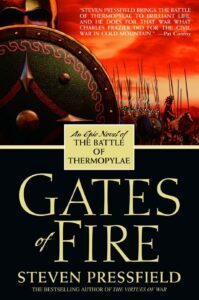 I believe this is the best historical novel I have ever read. I first read it fifteen or more years ago and have gone back a couple times since. Pressfield tells the story of one of the most famous battles in history, the battle of Thermopylae where 300 Spartan warriors held off the entire Persian army for long enough that the rest of the Greek army could gather and defend itself. The story is not fresh. The ending is known. But the telling of the tale is the genius. Pressfield captures the ethos and pathos of the Spartans brilliantly. He writes of battle with sparse, brutal clarity yet without wallowing in gore and violence. He reveals heroism in the foundational courage, brotherhood, and sacrifice of those 300. And he manages to do all this in fewer than four hundred pages, a feat worthy of adulation all its own.
I believe this is the best historical novel I have ever read. I first read it fifteen or more years ago and have gone back a couple times since. Pressfield tells the story of one of the most famous battles in history, the battle of Thermopylae where 300 Spartan warriors held off the entire Persian army for long enough that the rest of the Greek army could gather and defend itself. The story is not fresh. The ending is known. But the telling of the tale is the genius. Pressfield captures the ethos and pathos of the Spartans brilliantly. He writes of battle with sparse, brutal clarity yet without wallowing in gore and violence. He reveals heroism in the foundational courage, brotherhood, and sacrifice of those 300. And he manages to do all this in fewer than four hundred pages, a feat worthy of adulation all its own.
3) “Summer’s End” by John Prine
Simply one of the most moving, beautiful songs I’ve heard from one of the best to ever lyricize.
Kindle Deals for November 7
Cultivating the Fruit of the Spirit: Growing in Christlikeness by Christopher J.H. Wright – $3.99
How to Tell the Truth: The Story of How God Saved Me to Win Hearts—Not Just Arguments by Preston Perry – $3.99
The Importance of Being Foolish: How To Think Like Jesus by Brennan Manning – $1.99
Why We Believe: Finding Meaning in Uncertain Times by Alister McGrath – $.99
Tiger Woods by Jeff Benedict – $1.99
QB: My Life Behind the Spiral by Steve Young – $3.99
Pitch by Pitch: My View of One Unforgettable Game by Bob Gibson – $2.99
The Revenant: A Novel of Revenge by Michael Punke – $3.99
The Constant Gardener: A Novel by John le Carre – $1.99
English Creek by Ivan Doig – $1.99
The Good Liar: A Novel by Nicholas Searle – $2.99
The Fishermen: A Novel by Chigoe Obioma – $1.99
MY BOOKS:Belong: Loving Your Church by Reflecting Christ to One Another – $8.99
Hoping for Happiness: Turning Life’s most elusive Feeling into Lasting Reality – $8.99
The Pastor’s Kid: What it’s Like and How to Help – $8.99
Help My Unbelief: Why doubt is not the enemy of faith – $2.99
The Curious Christian: How Discovering Wonder Enriches Every Part of Life – $4.99
These links are Amazon affiliate links.



